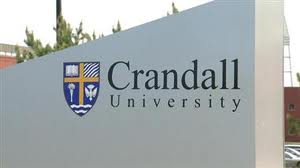“The Crandall Scandal," that’s how Dieppe City Councillor Jody Dallaire referred to Moncton’s monetary largesse towards Crandall University. Crandall, formerly the Atlantic Baptist University (ABU), is a small, 1100-student campus in Moncton. Crandall refuses employment for staff and faculty positions to openly gay persons. A private Christian institution, it operates within the parameters of New Brunswick's Human Rights Act.
Moncton’s annual grant of $150,000 was brought to light in 2009 by the Times & Transcript’s Brent Mazerolle. Gay rights advocates noted it negatively, but a Crandall staff person scornfully retorted, “Nobody at Crandall pays any attention to those letters.”
Yet, while Moncton’s Mayor George LeBlanc solidly backed the contribution, discordant voices increased, Carl Bainbridge, running for Mayor against Leblan, was critical of the grant to Crandall.
Greater Moncton’s River of Pride organization, representing LGBTQ residents of the three communities of Riverview, Moncton and Dieppe, issued a press release sharply critical of Moncton’s contribution to Crandall and its spurning a segment of its own citizenry.
The Canadian Association of University Teachers (CAUT) commissioned an investigation of Crandall, carried out by Professors Berkeley Fleming of Mount Allison and Jenny Hornosty of UNB. The CAUT report of June 2010 noted that Crandall’s Statement of Moral Standards made clear that same gender sexual behaviour is unacceptable for staff or faculty at the institution, though not for students entering the school.
Jillian Duplessi of Miramichi was enrolled in Crandall’s education program early in 2012. When the 22-year old learned about Crandall’s hiring policy she withdrew. “If there is a student in my class that is gay,” she said, “I don’t want them to feel more isolated than they already do. I don’t want them to think that I’ve judged them because I have Crandall on my record.” In Miramichi, support for Ms, Duplessi blossomed: federal Conservative MP Tilly O’Neill Gordon phoned Jillian’s somewhat startled father to commend her courage.
Other students joined in. Ian Pilkey, student president at Crandall, distanced himself from the policy that bans the hiring of gay staff and faculty. Speaking to CBC, he noted an overwhelming number of calls from fellow students who agreed that the personal lives of professors shouldn’t affect the hiring process.
The issue was attracting national attention; public funds going to an institution that discriminated against LGBTQ citizens by refusing to hire them. Global TV featured the reaction. Questions arose about Crandall’s standards, particularly in regard to credentials for post-graduate study .
Something needed to be done. In August, 2012, Dr. Bruce Fawcett became Crandall's new President. Moncton-born, Fawcett had been a highly esteemed local Baptist minister and a part-time teacher at ABU. He let it be known that he was looking for a way forward. In an interview with with Mazerolle, he said, “Three years into a controversial funding agreement with the City of Moncton, Crandall University has told the city it won’t be asking for the annual contribution of $150,00." Fawcett had discussed it with the Crandall board. It was the right thing to do, for a number of reasons. Considering all the good the university was doing, the issue of the city grant was a distraction.
Fawcett ventured further. First, there was a proto-apology: He expressed sympathy for an already ‘marginalized group.' Second, Fawcett noted that the provincial Human Rights Act protects freedom of religion, and gives the university the right to set standards. Crandall bases its opposition to homosexual behaviour on deeply held religious beliefs. The people of New Brunswick, with its large Roman Catholic population, understand: some faith communities deny women equal rights. Likewise, Crandall does not want a professor to be sexually active with someone of the same sex.
In New Brunswick, the Human Rights Act protects the province’s women and gays against discrimination. Yet that same act permits Roman Catholics, for example, to discriminate against women by not ordaining women priests, and allows Crandall, with its strict interpretation of biblical proscriptions against homosexuality, to discriminate against gays.
Fawcett spoke of reviewing the matter again next year: but in New Brunswick, for the moment at least, the days of a private, discriminating institution receiving public funds are over. Hopefully, the Crandall Scandal is forever scuttled.
Eldon Hay is a retired United Church Minister and human rights activist. He is a Professor Emeritus at Mount Allison and has been a strong ally in the fight for LGBTQ equality. In January, an earlier version of this article appeared in The Argosy, Mount Alison Uninversity's independent student newspaper.


